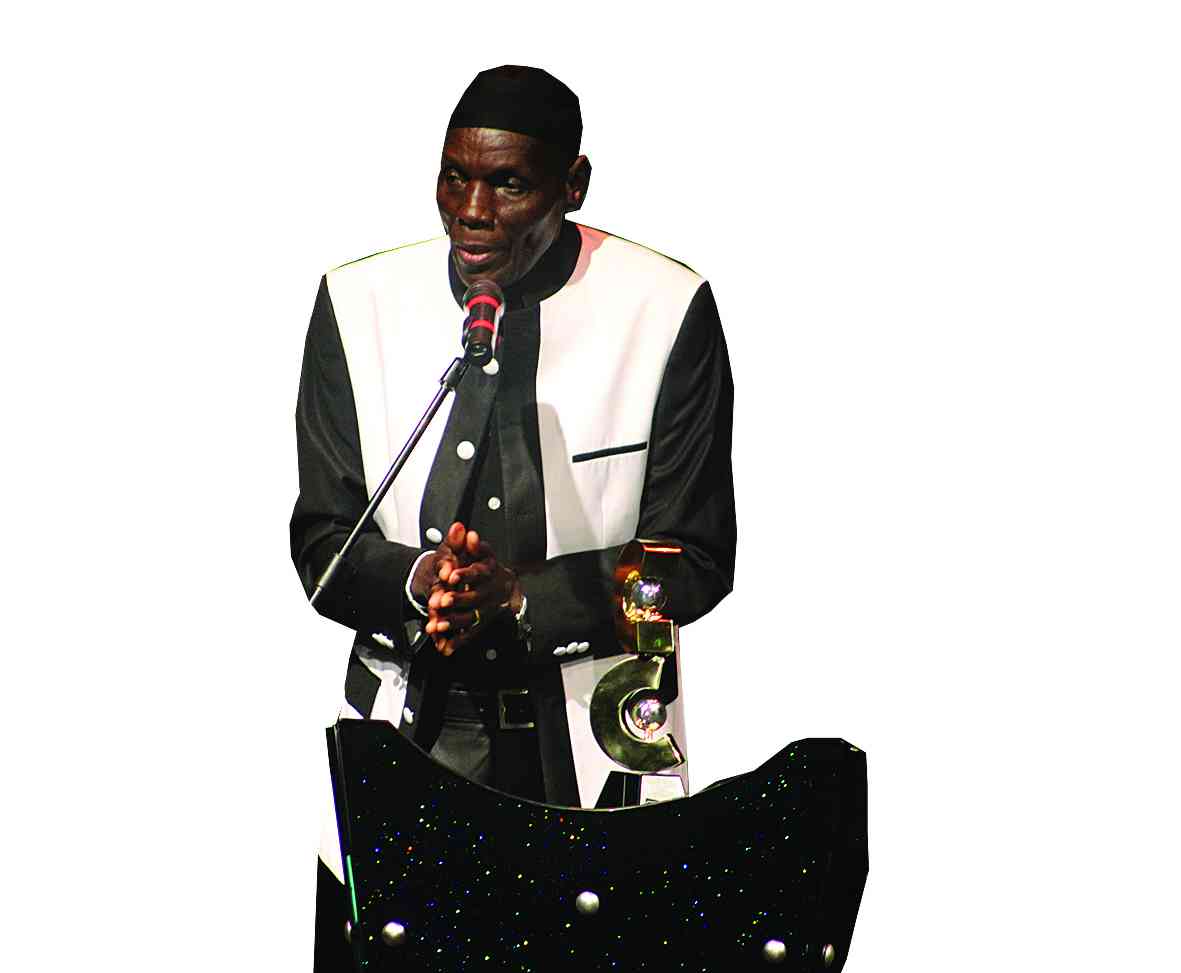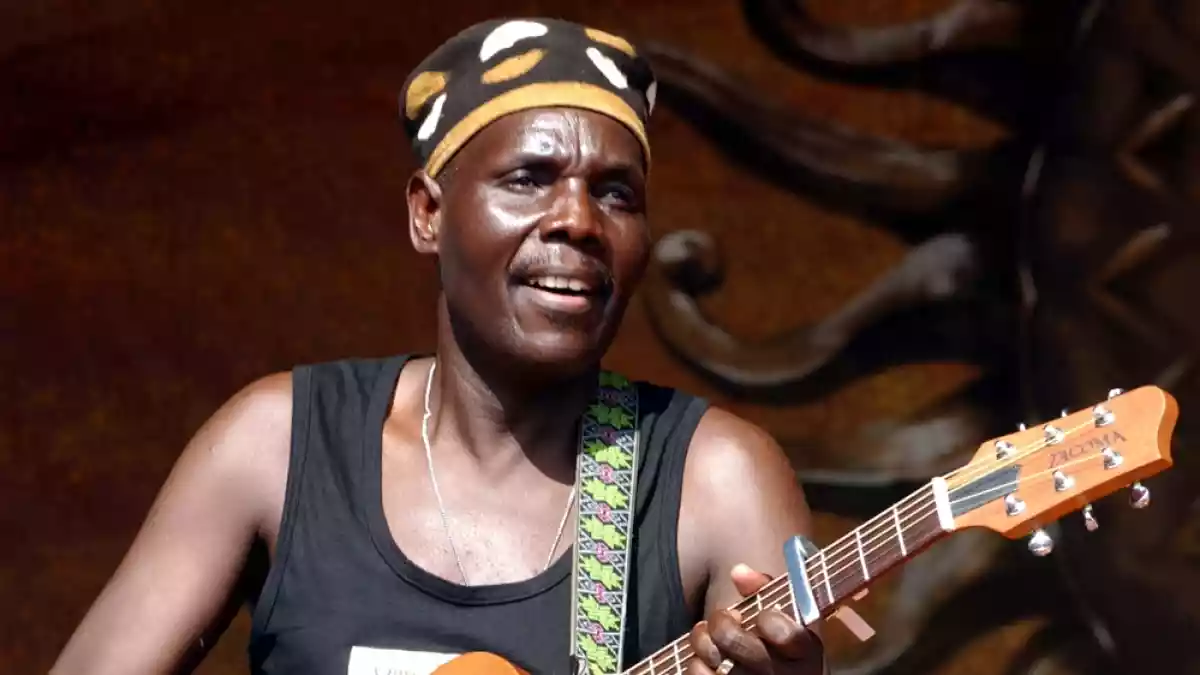
"TATSAUKA pano nekuti paita Tuku, (We passed by because you are playing Tuku music)” my late brother Johannes and his friend Evaristo Chiwara once told merrymakers in Rimuka, Kadoma, in the late 1990s after gatecrashing at a party.
The uninvited guests came tothe party not for the food or beer, but because of the lure of the late Zimbabwean legendary songwriter, Oliver “Tuku” Mtukudzi's music the DJ was playing.
This was in 1999 after Tuku had just released the Tuku Music album, which many still believe was the turning point of the superstar’s career.
Johannes, also a fan of the late Jamaican reggae artist, Gregory Isaacs, used to boast that he fell in love with Tuku’s music since he began to listen and appreciate the beauty of music.
Such was the power of Samanyanga as Mtukudzi was also known.
Arguably one of the best musicians ever produced in Zimbabwe Samanyanga’s music, laden with a a sea of wisdom mesmerised, stirred and dazzled fans across the globe including my two brothers.
The music continues to bring joy to hearts of many and still speaks to the souls of another good number.
However, behind the Dzandimomotera hitmaker’s public face, only known by some, was the private one, with its own challenges to bear.
- Did Tuku speak his troubled life in song?
Keep Reading
Recent family squabbles have left tongues wagging across the country, interrogating the man whose music focuses mainly on how people can coexist peacefully and progressively.
The million-dollar question is: Did the Zimbabwean musician, businessman, philanthropist and human rights activist fail to handle his family legacy or he was just, but unfortunate?
Escapism through art
Writers and artists are some of the most passionate people who pour out their hearts and souls into what they do.
In their eyes, art is an escape route for these people because it is what they turn to for solace.
Many artists use art each day to express their life experiences.
Such was award-winning Zimbabwean novelist, the late Dambudzo Marechera.
In an interview with the late British journalist George Alagiah in 1984, Marechera said: “I acquired the ability to simply go on reading even while my father and mother were fighting or while someone was being mugged just outside the house. I would simply just concentrate, knowing very well about the horrifying circumstances around me. A total escapism,”
European literature and the English language became Marechera’s means of escape.
German literary academic Flora Veit-Wild in the publication Words as Bullets: The Writings of Dambudzo Marechera, explained Marechera’s behaviour.
She wrote: “It would seem that Marechera finds himself always persecuted, endlessly pursued. With his usually thin skin, he can only survive the constant, threatening blows of the outside world through the powerful and magical intense, with exceptionally vivid imaginative power.”
Music, just like what writing did to Marechera, allowed the late national hero, Tuku, to navigate through difficult parts and deepest fears of his life.
“My music and art come from the everyday living I do,” Tuku once said.
“I write what I see around me," he added.
To Samanyanga there was a thin line between music and reality as to be almost non-existent, which might have contributed to his failer to deal with skeletons in his cardboard.
In the song Tozeza Baba, Tuku is at liberty to speak, giving voices to three sets of people; the children, their mother and father.
The children are given the voice to complain and also question why their father, who is always physically abusing their mother when he is drunk, behaves in that way.
“Imi baba manyanya kurova mai . . . Munoti isu vana, tefara sei . . . Kana mai vachingochema, pamberi pedu . . . idoro here rinoti mai ngavarohwe . . .” (Father, your frequent beating of mother is too much. How can we be happy when our mother is always crying in front of us? Is it beer that influences you to beat her?).
The mother is given an opportunity to express herself and vows to stay with the abusive husband for the sake of her children.
(Beat me I will die looking after my children here),” just like the solo musian Steve Makoni song in which a woman also vows to die living with her children: “Handiendewo musha wandinoziva ndeuno . . . ndofira vana vangu” (I’m not going anywhere. This is the home that l know. I will die for my kids).
But Tuku himself dares society and rubbishes the old tradition of persevering with an abusive husband and adds a new voice: “Dai ndirini ndoenda kumba kwedu (If it was me, I would go home)”.
However, in the song Hazvireve Rudo Handina, Tuku is tight-lipped and deliberately decided not to give a voice to the mother or the daughter, just like what novelist Tsitsi Dangarembga did in the book Nervous Conditions, deliberately killing Nhamo to promote the girl child Tambu.
Tuku, a peacemaker in his own right, decides to leave it in the hands of God “Tichaonana tichaonana kana Mwari vada (By God’s will we shall meet)”, meaning he as a human can’t solve it.
He also apologises that he and the mother were young when they parted ways: “Mai vaive Mwana mudiki ini ndakanga ndichi Mwana mudiki. Bopoto, kutukana, nekuoneka (Mother was young, I was also young . . . quarrels, exchange of words, parting ways)”.
Mtukudzi gave one word explanations.
In the song Ndipeiwo Zano, Samanyanga asks God what exactly he sinned to deserve the miserable life, “Chandakatadza chiiko nhai Mwari wangu? (What is it that I did wrong my Lord?)”.
In the song Njuga, Tuku hints that despite a punter shuffling the cards (not in the real sense), they still went on to lose the game.
“Njuga yadya mugwandi. Dzimwe nyaya unozviparira wega (The one who shuffled the cards went on to lose the game. Sometimes we invite the problems we go on to face in life).
In the song Ndotangira Poi (Where do I start from?), the superstar bemoans being an adult and wishes he could have remained young.
There are a lot more songs that the music grandee might have penned that spoke to his own life such as Ivai navo, Sarawoga (Tuku laments the losses that he has had to endure in life, not least the loss of life. Thus he has been left “alone” in a sense).
Mtukudzi might have failed to deal with family issues because he had a lot to lose and protect.
Most of his songs spoke out against stigma, discrimination and abuse of children.
In songs like Neria, Ndagarwa Nhaka, Haasati Aziva, Wagona Fani, just to mention a few, Tuku might have avoided friction with family members so as to protect the public image and what he advocated through music.
The music superstar might also have wanted to protect the Unicef Regional Goodwill Ambassador role for Eastern and Southern Africa, hence he always wanted things to be resolved amicably, but failed.
Naturally, Tuku was a humble being. He also has some of the songs that he penned about humility, songs such as Ninipa, Muranda Kumwe, among others.
His humility could have worked against him as he failed to maintain a firm grip on his family as a father.
Unending family fights
Tuku might have tried by all means to unite the family, as confirmed by the girls (Selmor and Sandra Mtukudzi), but his wife Daisy might have been throwing the spanners in the works and took advantage of Tuku’s humility, understanding and love.
In the song Ndiwe Mbabvu Yangu, Tuku appreciates the company of Daisy and how she is always there through thick and thin.
Setting shapes characters
In literature, the analysis of setting is important.
Certain actions are more likely to take place in specific environments
The behaviour of people travelling on the back of a truck, touts pamushika shika (illegal pick-up and drop poins), party activists at a rally, DeMbare supporters at Vietnam Bay at Rufaro Stadium is understandable.
A closer look at Daisy’s behaviour in church defies all that.
First, she is in uniform (bhachi rekuchurch); secondly, she is in the church and, thirdly, she is in front of the pastor, elders and madzimai eruwadzano, but decides to say words that are not appropriate.
She said: “Inini ndinoti ndiri nzou irikufamba ichibva uko nemutsindo then tikutu tuchihukura tichienda uko . . . (Sorry mufundisi kuti ndataura ndichidaro. (I am like an elephant coming from the other side causing vibration and puppies barking going the other direction. I am sorry pastor I have said that).”
If Daisy could say this in church, what do you think she can say in her own house behind closed doors?
The Bible in James 3 verse 11 says a spring cannot produce both fresh water and salty water.
It’s either fresh or salty
Maybe we need to forgive, Tuku he might have had more to deal with after all.










